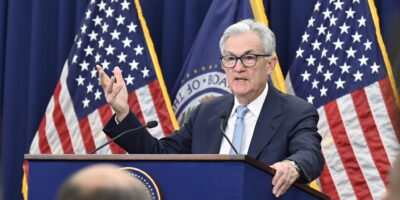Why Study Free Banking?
Last Tuesday ATLAS’ Sound Money Project held a panel with the title of “Making the Case for Sound Money” at the 2011 APEE Conference. Jorge Borlandelli from The Nassau Institute, myself from Suffolk University, Tom Duncan from GMU/Sound Money Project and Gerald O’Driscoll from The Cato Institute as discussant were in the panel.
I tried to discuss different reasons on why one should study the theoretical foundations of free banking, as well as the different historical cases that where close to such a system. If the presence of central banks are given and the potential possibility of moving toward a system closer to free banking is not feasible, why study free banking? Why study an institutional arrangement that is not possibility and has not been present for a long time. The following points summarize why I think that even if that is the case, there are gains in studying the characteristics of an unregulated market in money and banking.
- To consider alternative institutional arrangements forces us to think outside the box of a central bank. Even if we have to deal with a particular tree in the short term, to study the forest can provide exogenous information useful for our tree. To think outside the box of a central bank structure takes us beyond the frontier of the model and provides a better contrast with the problems and limits a central bank cannot elude and must deal with.
- Because free banking implies the study of competitive banks issuing banknotes, the microfoundatios involved in the process come to surface and must be studied. One cannot study the process of free banking without paying attention to what is going on at the microeconomic level. This, however, is easier to be done under the scenario of a central banks as a state monopolist that tracks the performance of macroeconomic or aggregated variables that conceal the microeconomic structure of the economy. The study of free banking becomes a test of how solid the theoretical foundations of central banks are. To set aside the problem of the microeconomic foundations does not make the problem go away, but to accept the implicit and unquestioned micreconomic assumptions required in the macroeconomic model. The study of free banking, then, becomes a test of how sound the microeconomic assumptions in the scenario of a central bank actually are. Free banking can provide a guidance to test if the micreconomic requirements for an efficient central bank hold or do not hold. Free banking, then, is a more rigorous and complete study of the market of money and banking.
- We don’t have total control on institutional changes. Usually they don’t happen neither when nor in the magnitude we consider appropriate. When the time comes that some institutional change becomes feasible (i.e. due to a financial crisis) and there is nor reference as to where we want our monetary institutions to go, then the small changes that we can sporadically do become random and erratic, rather than small steps taking as closer to a better system. It is the political mood in place what drives the change rather than the institutional convenience. To study unregulated money and banking cannot but provide information on what that ideal reference would be. Even if there would not be perfect consensus among different economist, the divergence in opinion can be reduced.
- The role of the economist is not only to study the market process, but to explains his conclusions to the public and policy maker. Similarly to the doctor who repeatedly recommends to his patient to quit smoking even if he know he won’t, the economist has to recommend to the policy maker what he should do even if in the short run his recommendation will unlikely taken. As Austrian economist Friedrich Hayek emphasized, the role of the economist is to contribute in making what is economic efficient to become politically possible. If when the opportunity to make an institutional change comes the economist does also not include in his recommendation the best alternative under the excuse that is not feasible in the short run, he is not fully doing his job as an economist, but putting himself inside the political constraint. It is that constrain, however, what needs to be removed. If we are going to wait for the policy makers to change their mind in favor of unregulated banking, then is likely the case that we are going to wait forever.
- No recommendation of sound money would be complete without the forceful position to avoid chronic fiscal deficits. It does not matter what regulations are or are not in place, if the government is carrying on fiscal deficit the money market is in danger and will probably be the first place where the government will seize new resources. This is no other thing than the historical record of what governments have done once and over again when facing fiscal deficits: confiscate and/or debase the currency. Even though free banking might not be directly related to this aspect, its relevance merits a mention as well. Fiscal responsibility is not a matter of right or left, or of pro-free markets or anti-free markets, is a matter of efficient or inefficient governments.
What other reasons to study free banking can you think of?
Nicolas Cachanosky is a doctoral student in economics at Suffolk University, as well as a previous Sound Money Essay Contest winner.
Image by Master isolated images / FreeDigitalPhotos.net.









